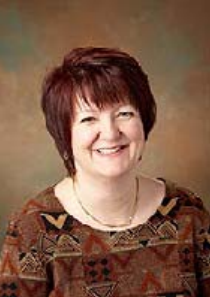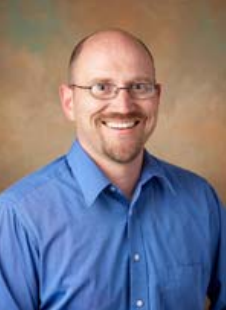2016-2017 Professorial Lectures

Games on Graphs
Zsuzsanna Szaniszlo, Ph.D.
(Department of Mathematics)
One relatively recent field of mathematics is graph theory. Vertex-edge graphs have been studied by mathematicians since the 18th century, but they have prominent roles in many modern mathematical applications. Such graphs can be used in modeling computer networks, in assigning medical residents to hospitals, in planning efficient bus routes or mail delivery routes, in reconstructing DNA, and in many other areas of life. The history of the field started with a social game, and since that time mathematicians have introduced many different games we can play with these objects. During this talk we will discuss several of these games and some additional applications.

Some Interesting Characteristics of Human Memory and How to Take Advantage of Them in Academic Settings
Kieth Carlson, Ph.D.
(Department of Psychology)
The human brain is obviously tremendously complex, and yet, 6 basic principles describe its general functioning fairly well. I will use demonstrations, research and commonly held, but false, beliefs about the brain to argue that these 6 principles are worth knowing.

The Business of Climate Change
Elizabeth Gingerich, JD
(Department of Business)
In December 2015, world leaders converged in Paris for the 21st Session of the Conference of the Parties (COP21) to the United Nations Framework Convention on Climate Change to collectively address global warming. While an agreement among government leaders to mitigate greenhouse gas emissions was reached, the role of the private sector was acknowledged as critical to its success. The science of climate change is indisputable and its devastating effects universal, yet the opportunities for investment and innovation are abundant. And as extreme weather events intensify – threatening to compromise communities and undercut the world’s gross domestic product – so does the need to engage in long-term, sustainable resource development and management. Coordination of the process to transition to low-carbon economies is expected to come from private businesses and industries.

Putting Walt Whitman to Work: The Employment of English Majors
Martin Buinicki, Ph.D.
(Department of English)
The passage of the Fugitive Slave Law in 1850 triggered a wave of protest writing, and many of these works are now considered classics of American literature. Today, as our deeply divided nation prepares to inaugurate its 45th president, what can these texts teach us about passionate, peaceful dissent?

Christ in the University: Schlink’s Vision and the Valpo Tradition
Matthew Becker, Ph.D.
(Department of Theology)
In the wake of the Nazi transformation of Heidelberg University in the 1930s and early 40s, several individuals who were called to Heidelberg after 1945 began to work toward that university’s renewal. Among these professors was Edmund Schlink, one of the most important Lutheran theologians of the twentieth century. His 1947 professorial lecture set forth his understanding of the relationship between Christian theology and all other university disciplines. In this lecture he also called for fruitful dialogue between theology and the other university disciplines as a way of strengthening the university’s overall mission. What was this vision? How does it compare with the Valpo theological tradition that began to take shape in those same post-war years? How might Schlink’s understanding of “Christ in the university” inform our life and work together at Valparaiso University today?

Ecology in the Field: Doing Inquiry-based Projects as Service Learning in Science
Laurie Eberhardt, Ph.D.
(Department of Biology)
Valparaiso University’s mission statement says that we prepare students to lead and serve in society. Service learning may conjure images of social work students placed in social service agencies, education majors tutoring at-risk students, or future nurses volunteering at a health clinic. But can we also accomplish service to the community in a science course where learning objectives focus on scientific content and process? What kinds of community partners can benefit from the work of science students and what can our science students learn from their service experience about science in the real world?

The Most Interesting Woman You’ve Never Heard Of –The Life and Work of San Francisco’s Sarah B. Cooper
Mike Owens, Ph.D.
(Department of English)
If this were 1897, most all of us would be familiar with the name Sarah B. Cooper of San Francisco. Initially with aspirations of being a fiction writer, Cooper found her calling as an educational reformer and essayist. She was largely responsible for the establishment of kindergartens on the West Coast; had the largest adult Sunday School class in San Francisco for many years, yet was tried for heresy; was initially opposed to women having a vote, yet became an ardent suffragette who met a tragic death in 1896. Throughout the 1880s and ‘90s, Cooper regularly made national news, yet today she has been largely forgotten by history. This presentation comes from an ongoing biographical research project that examines both Sarah Cooper’s significance in late 19th century American culture and reasons for the failure of her legacy to endure.
- Professorial Lectures
- 2023-2024 Professorial Lecture
- 2022-2023 Professorial Lecture
- 2021-2022 Professorial Lectures
- 2019-2020 Professorial Lectures
- 2018-2019 Professorial Lectures
- 2017-2018 Professorial Lectures
- 2016-2017 Professorial Lectures
- 2015-2016 Professorial Lectures
- 2014-2015 Professorial Lectures